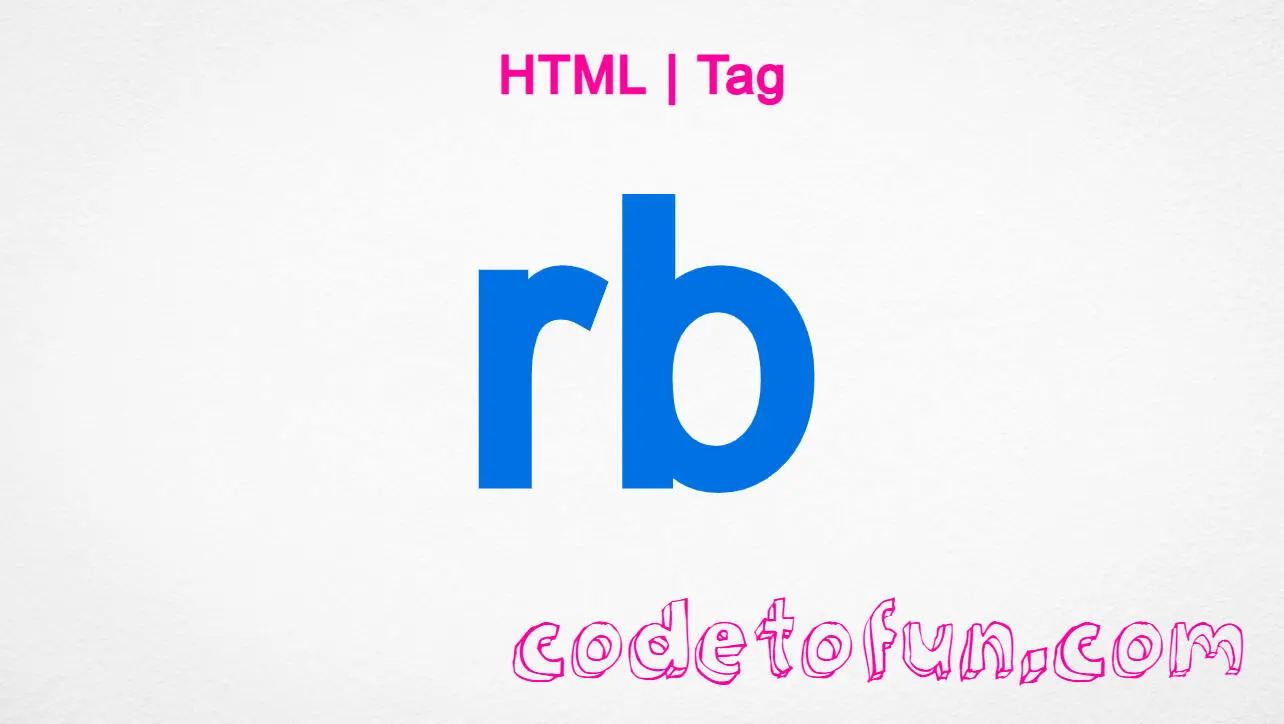
HTML Basic
HTML Reference
HTML dir Tag

Photo Credit to CodeToFun
🙋 Introduction
The <dir> tag, although deprecated in HTML5, has played a role in structuring document content. This guide will provide insights into the historical significance and implementation of the HTML <dir> tag.
🤔 What is <dir> Tag?
The <dir> tag, short for directory, was initially introduced to define a directory list within an HTML document. It aimed to organize and display a list of files or folders on a webpage.
💡 Syntax
The <dir> tag has a simple syntax, with an opening <dir> tag and a closing </dir> tag. However, it's important to note that due to its deprecated status in HTML5, its usage is not recommended.
<dir>
<!-- Directory-related content goes here -->
</dir>🚫 Deprecated Status
It's crucial to note that the <dir> tag is deprecated in HTML5, meaning it is no longer considered a valid standard. Modern web development practices encourage the use of more semantic and accessible alternatives.
🕰️ Historical Usage
In the early days of HTML, the <dir> tag served as a container for organizing and displaying directory-related information. However, as the web evolved, the need for more flexible and semantic structures became apparent, leading to the deprecation of <dir>.
🧰 Attributes
The <dir> tag itself does not support any specific attributes. However, when using alternative approaches like unordered lists, you may utilize attributes such as class and style for styling and customization.
<ul class="directory-list" style="color: #333;">
<!-- List items go here -->
</ul>📚 Common Use Cases
While the <dir> tag is no longer recommended, understanding its historical use cases can provide insights into its initial purpose. It was primarily used to create structured lists of files and folders within a webpage.
🖥️ Browser Support
As the <dir> tag is deprecated, its support across modern browsers is limited. It's advised to avoid using this tag in favor of more widely supported and semantic alternatives.
- Google Chrome: Partial support (deprecated).
- Mozilla Firefox: Partial support (deprecated).
- Microsoft Edge: Partial support (deprecated).
- Safari: Partial support (deprecated).
- Opera: Partial support (deprecated).
- Internet Explorer: Partial support (deprecated).
🏆 Alternative Approaches
While the <dir> tag is no longer recommended, achieving similar results can be done using other HTML elements. Consider using an unordered list (<ul>) with list items (<li>) to create a simple and structured list.
<ul>
<li>File 1</li>
<li>File 2</li>
<li>Folder 1
<ul>
<li>Subfile 1</li>
<li>Subfile 2</li>
</ul>
</li>
</ul>🎉 Conclusion
While the HTML <dir> tag has historical significance, it has been deprecated in modern web development. Embrace more semantic and accessible alternatives, such as unordered lists, to structure and present directory-like information on your webpages.
👨💻 Join our Community:
Author

For over eight years, I worked as a full-stack web developer. Now, I have chosen my profession as a full-time blogger at codetofun.com.
Buy me a coffee to make codetofun.com free for everyone.
Buy me a Coffee












If you have any doubts regarding this article (HTML dir Tag), please comment here. I will help you immediately.